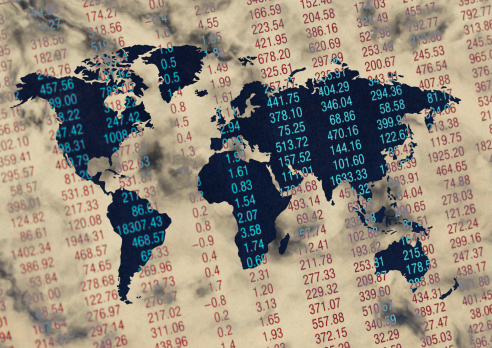It is no coincidence that Puerto Rico publicly admitted its debts could not be repaid at the same time that Greece technically defaults to the International Monetary Fund. The world is getting a small dose of fiscal realism it has thirsted for since before the 2008 bailouts.
While there are many similarities between Puerto Rico and Greece, the two situations are actually vastly different. In a word, Puerto Rico has hope for the future. Greece, less so, at least as long as it continues down its current path.
By the superficial debt numbers, the situation is quite similar. Greece’s debt is at 177% of gross domestic product (GDP) while Puerto Rico’s is at 150%. Both are equally unpayable, but that is where the similarities end. While the Greek economy has shrunk by 30% since peak GDP in 2008, Puerto Rico’s has actually grown by 20%. This shows more than anything that growth is less a function of government than it is business freedom and comparative regulatory burden.
Another way to look at it is that the more an economy is dependent on government checks to sustain the illusion of growth, the faster that growth will come crashing down when the government goes bankrupt. This is the case with Greece. On the other hand, for an economy where the government is in debt, but the economy is relatively freer and less shackled, then a government debt default will have less impact overall. So while Puerto Rico is struggling because of high government debt levels, its economy is quite far from being absolutely suffocated as is happening in Greece.
ALSO READ: Will Last Ditch Efforts Stave off Nationalization in Greece?
The differences have little to do with the monetary situation, as the two countries are practically under the same form of monetary regime. Neither of them control their own money supply, as Greece cannot print euros to the same extent that Puerto Rico cannot print U.S. dollars. And yet the Puerto Rican economy is doing OK — maybe not as well as it could be, but certainly stellar compared to the Greek economy.
Puerto Rico actively encourages the rich to move assets there, enticing them with tax benefits like zero capital gains and zero dividend taxes, and a corporate tax rate as low as 4%, though with the full regalia of hoops of course. Foreign residents are exempt from all Puerto Rican income taxes as well. Puerto Rico is equally exempt from Obamacare, which could serve as an interesting test tube to assess the law’s claims that it will lower health care costs.
Perhaps most importantly, the banking and government sectors in Puerto Rico are not joined at the hip as they are in Greece. This is precisely why Greek banks have been shuttered and the economy virtually frozen, while Puerto Rico is still moving along despite officials publicly admitting its public debts will never be repaid.
One of Puerto Rico’s lead banks, Popular Inc. (NASDAQ: BPOP), while its stock is down 12% since Puerto Rican insolvency was admitted on Monday, June 29, has not been nearly as damaged as its Greek bank counterparts, which have lost nearly all of their equity. And here we get to the crux of the difference between the two.
ALSO READ: Countries With the Widest Gap Between the Rich and the Poor
Popular, with just over $21 billion of total loans in its portfolio, has only $665 million in nonperforming loans, according to its most recent filing. That is only 3.2%. By comparison, Greek bank Piraeus, for example, has close to 40% in nonperformance. How did that happen? When Greece became locked out of the debt markets, the only institutions buying its debt were its own local banks. They were essentially tying themselves to a sinking ship, which they succeeded in doing. They are now shuttered, suffering from capital controls, and for all intents and purposes bankrupt until the European Central Bank decides to turn on the monetary faucet, the Emergency Liquidity Assistance program, once again, if it ever does.
Are You Still Paying With a Debit Card?
The average American spends $17,274 on debit cards a year, and it’s a HUGE mistake. First, debit cards don’t have the same fraud protections as credit cards. Once your money is gone, it’s gone. But more importantly you can actually get something back from this spending every time you swipe.
Issuers are handing out wild bonuses right now. With some you can earn up to 5% back on every purchase. That’s like getting a 5% discount on everything you buy!
Our top pick is kind of hard to imagine. Not only does it pay up to 5% back, it also includes a $200 cash back reward in the first six months, a 0% intro APR, and…. $0 annual fee. It’s quite literally free money for any one that uses a card regularly. Click here to learn more!
Flywheel Publishing has partnered with CardRatings to provide coverage of credit card products. Flywheel Publishing and CardRatings may receive a commission from card issuers.
Thank you for reading! Have some feedback for us?
Contact the 24/7 Wall St. editorial team.



